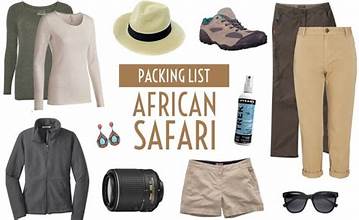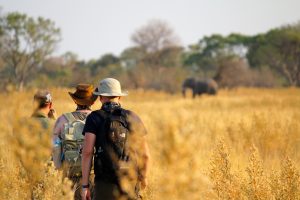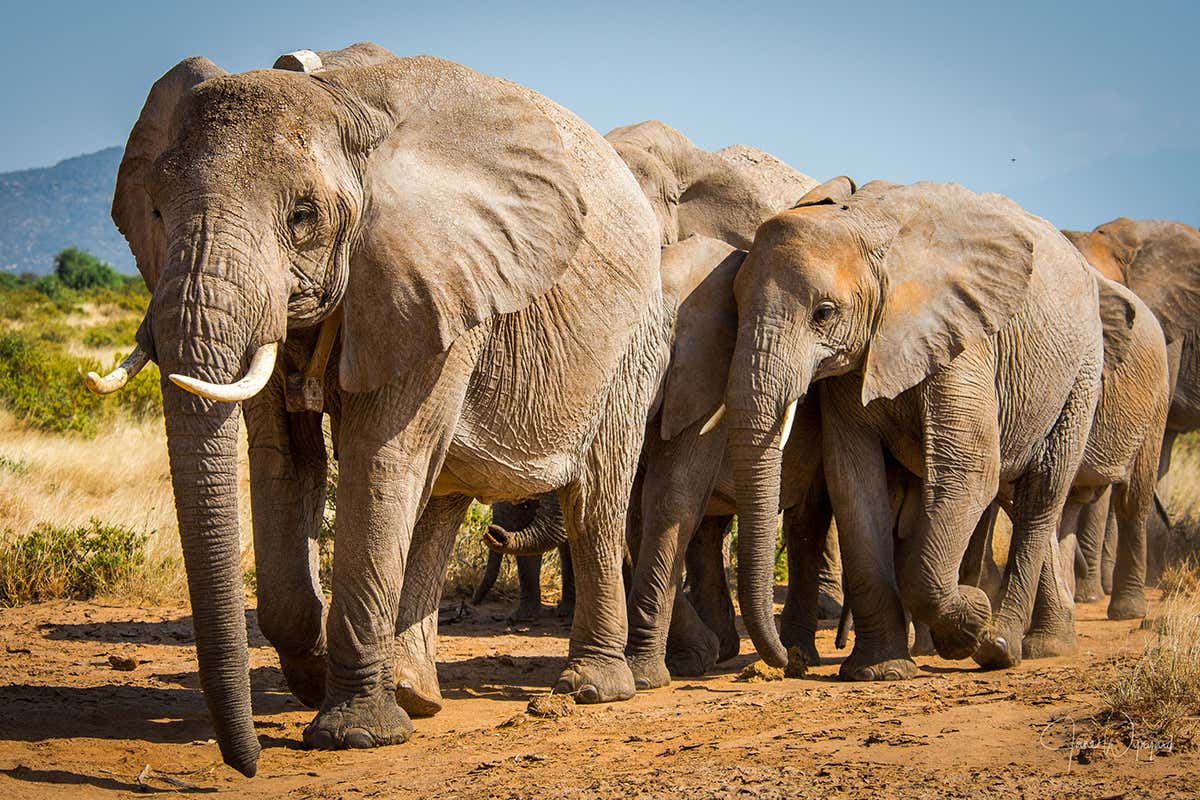
A safari adventure in Uganda promises unparalleled encounters with diverse wildlife, breathtaking landscapes, and vibrant cultures. However, packing for such an expedition requires careful consideration to ensure comfort, safety, and enjoyment throughout your journey. From protective clothing to essential gadgets, here’s a detailed guide on what to pack for a safari in Uganda.
Appropriate Clothing:
When preparing for a Ugandan safari, selecting appropriate clothing is essential to ensure comfort, safety, and enjoyment throughout your adventure. The diverse terrain and fluctuating weather conditions of Uganda’s national parks demand careful consideration of clothing choices. Lightweight, breathable fabrics such as cotton or moisture-wicking materials are ideal to combat the country’s warm climate. Opt for neutral-colored clothing to blend in with the natural surroundings and avoid attracting unnecessary attention from wildlife. Long-sleeved shirts and pants offer protection from the sun, insects, and potential brush encounters. Packing a wide-brimmed hat, sunglasses, and sunscreen will provide additional defense against the intense equatorial sun. Additionally, sturdy, comfortable walking shoes or boots are essential for navigating varied terrain, whether trekking through dense forests or traversing rugged landscapes.
Be sure to also pack a waterproof jacket or poncho for unexpected rain showers, particularly during Uganda’s wet seasons. By carefully selecting appropriate clothing, you’ll be well-prepared to immerse yourself in the beauty and wonder of Uganda’s remarkable natural heritage. A quick look at the appropriate clothing to pack:
- Lightweight, long-sleeved shirts and trousers to protect against the sun and insect bites.
- Neutral-colored clothing for blending in with the surroundings and avoiding startling wildlife.
- Sweaters or jackets for cooler evenings and early morning game drives.
- Comfortable walking shoes or hiking boots for jungle treks and nature walks.
- A wide-brimmed hat or safari hat to shield from the sun.
- Swimsuit for relaxation by the lodge pool or any water-based activities.

Protection from the Elements:
This is paramount when embarking on a Ugandan safari, where the weather can be unpredictable and varied across the country’s diverse landscapes. Sun protection is essential due to Uganda’s proximity to the equator, where the sun’s rays can be intense. Packing sunscreen with a high SPF, sunglasses, and a wide-brimmed hat will shield against sunburn and potential eye damage. Additionally, lightweight, long-sleeved clothing made from breathable fabrics provides protection from both the sun and insects, which can be prevalent in certain regions.
Given Uganda’s equatorial climate, sudden rain showers are common, especially during the wet seasons. Therefore, including a waterproof jacket or poncho in your safari gear ensures you stay dry and comfortable during unexpected downpours. By prioritizing protection from the elements through proper attire and gear, safari-goers can fully enjoy the wonders of Uganda’s natural landscapes while minimizing discomfort and health risks. What you need:
- Sunscreen with a high SPF to protect against harmful UV rays.
- Insect repellent containing DEET to ward off mosquitoes and other biting insects.
- Lip balm with SPF protection to prevent dryness and sunburn.
- Sunglasses with UV protection to shield your eyes from the glare.
Health Essentials:
One of the foremost concerns is protection against mosquito-borne diseases prevalent in Uganda, such as malaria. Therefore, it’s imperative to carry anti-malarial medication prescribed by a healthcare professional and to use insect repellents containing DEET or clothing treated with permethrin to minimize mosquito bites. Additionally, staying hydrated is crucial in Uganda’s warm climate.
It’s also wise to pack a basic medical kit containing items such as adhesive bandages, antiseptic wipes, pain relievers, and anti-diarrheal medication to address minor ailments or injuries that may occur during the safari. Furthermore, travelers should ensure they are up to date on routine vaccinations and consider additional vaccinations such as yellow fever, depending on the areas they plan to visit.
Maintaining personal hygiene, including regular handwashing and using hand sanitizer when water is unavailable. What to pack:
- Prescription medications and a basic first-aid kit.
- Anti-malarial medication and mosquito nets for sleeping.
- Rehydration salts and electrolyte supplements to combat dehydration.
- Hand sanitizer and wet wipes for maintaining hygiene, especially during outdoor activities.
- Personal toiletries and any specialized items you may require.
Photography Gear:
Selecting the right photography gear is essential to capture the stunning landscapes and diverse wildlife encounters that await. A high-quality digital camera with a versatile zoom lens is crucial for capturing both wide-angle scenic shots and close-up images of wildlife from a distance. Consider bringing a telephoto lens with a long focal length to capture detailed shots of animals in their natural habitat without disturbing them.
Additionally, packing a sturdy tripod ensures stability for shooting in low light conditions or when using slower shutter speeds. Investing in a protective camera bag or case is essential to safeguard equipment from dust, moisture, and bumps during rugged safari drives or treks. Don’t forget to pack extra memory cards and batteries to avoid missing out on capturing precious moments due to limited storage or power. What you need:
- Digital camera or smartphone with a high-quality camera for capturing memorable moments.
- Extra memory cards and batteries to ensure you never miss a shot.
- Binoculars for enhancing wildlife viewing experiences.
- Lens cleaning kit to keep your camera equipment in top condition.
Travel Documents:
To ensure a smooth and hassle-free experience, travelers must have the necessary documents readily available. Firstly, a valid passport with an expiration date at least six months beyond the intended date of departure is required for entry into Uganda. Additionally, visitors from many countries are required to obtain a tourist visa before arrival, which can often be obtained online or upon arrival at Entebbe International Airport. It’s important to check the specific visa requirements based on your nationality well in advance of your trip. Health-related documents such as proof of yellow fever vaccination may also be necessary.
- Valid passport with necessary visas and permits for entry into Uganda.
- Travel insurance policy covering medical emergencies, trip cancellations, and lost luggage.
- Printed copies of your itinerary, accommodation reservations, and emergency contact information.
Miscellaneous Items:
- Lightweight daypack for carrying essentials during excursions.
- Portable water bottle or hydration pack to stay hydrated throughout the day.
- Travel adapter and voltage converter for charging electronic devices.
- Waterproof bags or pouches to protect valuables from moisture and dust.
- Field guidebooks or wildlife identification cards for learning about the flora and fauna.
By packing thoughtfully and considering the unique requirements of a safari in Uganda, you’ll be well-prepared to embark on an unforgettable adventure in the heart of Africa.
Remember to pack light, prioritize essentials, and leave room for souvenirs and cherished memories from your safari expedition. With the right gear and a spirit of adventure, you’re ready to explore the wonders of Uganda’s wilderness and create lasting impressions that will stay with you for a lifetime.
SNTours





1 COMMENT